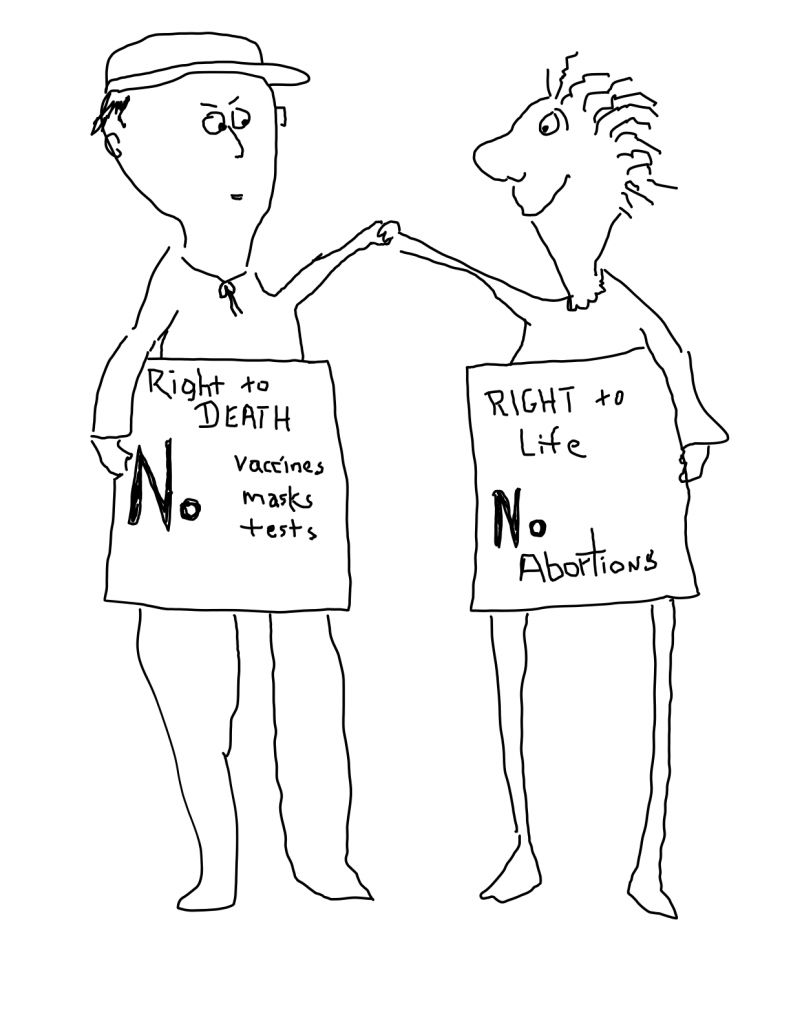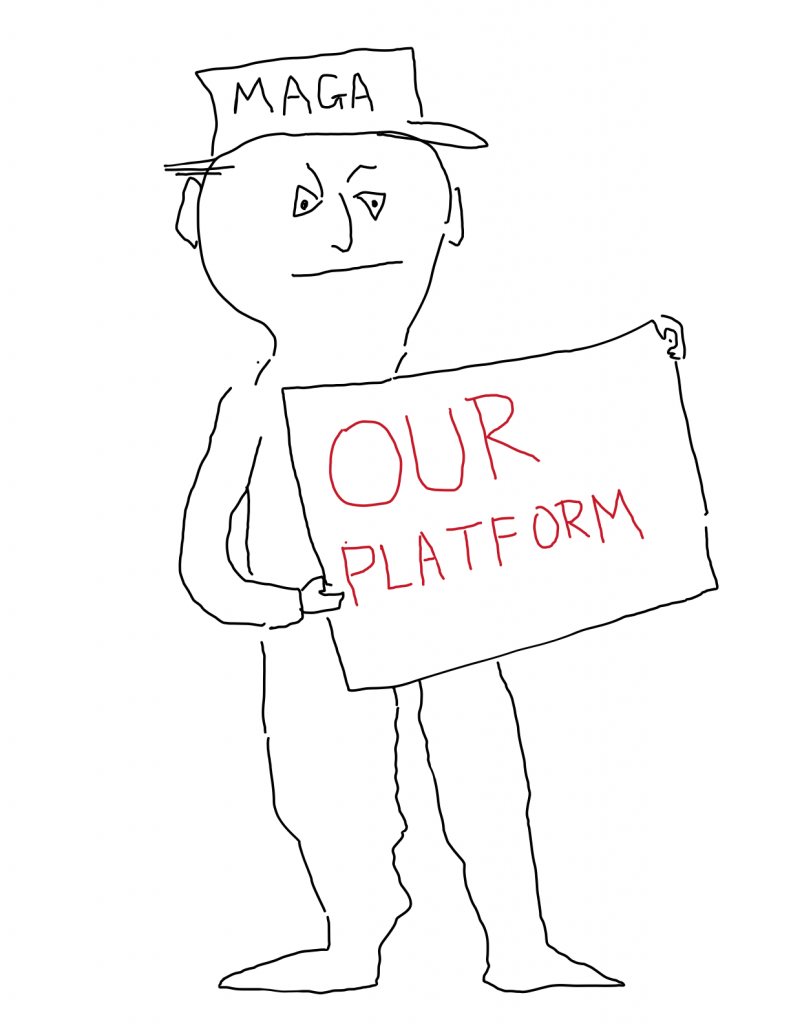Against all odds, despite international Covid restrictions, global flight cancellations, and general chaos across the planet, this week a young, Gabonese woman by the name of Embry Howell Bivigou Pangou arrived in Portland, Maine to live with our daughter and her family and study at the University of Southern Maine. How was this possible? It all comes down to two women named Embry, and, perhaps, nothing short of a miracle.
If you are wondering how a Gabonese woman could have as a first name “Embry Howell,” it began with the Peace Corps.
Before our son-in-law, Peter Ellis, married our daughter, Jessica, about 20 years ago, he spent two years as a Peace Corps volunteer in Gabon, a small, West African country and former French colony with a population of fewer than one million people in 2000. Jessica joined him a year later as a Peace Corps stowaway/wannabe. Jessica’s mother, Embry, a victim of incurable wanderlust, could not resist the temptation to visit them in this remote village, with mud-brick huts with tin or thatched roofs, dirt floors, and a day’s hike through the rain forest to the nearest village. Peter was an agricultural specialist. At least that was his title. Climbing palm trees to assist in the production of palm wine also seemed to be a major activity. Jessica found volunteer work helping with grant writing for a local community organization
When Embry arrived for a three-week visit toward the end of their Peace Corps stay, this community welcomed her with open arms. She immediately became “Mama Embry.” The homes of the villagers were near an abandoned, evangelical Christian compound built by Methodist missionaries decades before. The villagers were convinced Mama Embry had been sent to them by God. Embry silently protested, though in retrospect, perhaps they were right. She bonded with them, especially Simon Pangou, who had several children from teenagers to toddlers. About a year after Peter and Jessica returned home from Gabon, they received word that the next child of the Pangou family was proudly named “Embry Howell Bivigou Pangou,” born approximately nine months after Mama Embry departed. Embry was delighted to have her first namesake; but as the years passed, she did not give it a whole lot of additional thought.
Peter went on to earn a Master’s in Environmental Studies and eventually became a top carbon scientist at the Nature Conservancy. This job took him occasionally to Gabon where he reconnected with the villagers and with the Pangou family. Embry Howell Bivigou Pangou—now referred to by us as “Little Embry” –caught Peter’s attention even as a very young child; and a few years ago, upon returning to the U.S. from Gabon, he announced to his family and to Embry that we had to figure out some way to get her over here. He described her as incredibly smart, with a personality that would win over anyone, and the voice of an angel. She had finished high school in Libreville, the capital of Gabon, where the family had moved so the children would have better educational opportunities. She really wanted to go to college and come to the United States.
It is only a minor exaggeration to say that within minutes Embry was on it. And it was not too long before a plan was in place, though implementing the plan took years.
Step one: Find a good college here in the U.S., where Little Embry could study, preferably with a scholarship. The challenge was that Gabon is French speaking; and though Little Embry’s English was surprisingly good, Embry feared it was not good enough to pass the tests required to get into a U.S. college. Solution: Try to find a college that specializes in helping foreign students improve their English and their educational shortcomings to a point where they can qualify for college. Embry not only found such a college, The University of Southern Maine, it just happened to be a short bike ride from Peter and Jessica’s house in Portland. We got Little Embry all the application material, which she filled out and sent in along with an upbeat video where she sat in front of a banner that read “The University of Southern Maine” and, beaming, exclaimed in impressive English that the university was the perfect fit for her and she for it. I saw the video and was immediately captivated. To the surprise of no one who knew her, she was accepted.
Step Two: Get her over here. American visas for a Gabonese citizen are very hard to get. You must make a case that you are not leaving for good and will return to the country within a relatively short period. During the Trump years, in many poor countries in Africa, visas were not available. This was the case in Gabon when Trump closed down the U.S. Embassy. It would take three years before Biden would reopen it and appoint an ambassador, when in 2020, obtaining a visa became possible again. Then in summer of 2020 when it became apparent that Covid was here to stay, everything shut down again, then opened in 2021 briefly during the fall, just before the Omicron variant appeared.
During the long delay, Embry persuaded the University of Southern Maine to keep the acceptance open for her African namesake, and they agreed to do this for what would become three years. As 2021 came to a close, however, they told her that this was the last shot. If Embry Howell Pangou was not able to make the spring 2022 term, the acceptance would be withdrawn.
Full court press time.
In order to get a U.S. visa, you have to answer a lot of questions and have a personal interview with embassy officials. It took several tries for the interview to happen, having mainly to do with getting the application in proper form, computer problems, and having embassy personnel show up. But toward the end of 2021, it looked like everything finally was falling into place. The embassy interview got scheduled, and Embry had the airline connections figured out and how Little Embry could get a covid vaccine. Interviews at the Embassy finally started up again in early December, and Little Embry had her interview just before Christmas. It went well.
The race was on.
Hearing the report of a successful interview, Embry bought an airline ticket for Little Embry from Gabon to the U.S. with a connecting stop in Togo. Just before Christmas Little Embry was able to book an appointment to have a J&J vaccine (the only one-shot vaccine available in Gabon that the U.S. will accept and given the short time frame, two shots would have taken to long) two weeks before the flight to the U.S., the minimum time required by U.S. law. She still had to receive the visa, and she had to have a test showing negative Covid results 24 hours before leaving. If either of these actions failed, she would not have made it to the U.S.—at least not in time to keep her place at the University of Southern Maine.
Little Embry also had to get to the airport in plenty of time. (She had never flown before.) She had to clear passport control. The plane had to take off close to on time since she had to make her tight connection with the flight going to Newark at a time when thousands of international flights were being cancelled every day.
Just when it looked like all the obstacles had been overcome, when Little Embry arrived at the airport, the Air Afrique representative told her she was not on the list and could not board the airplane. Fortunately, her mother, Mama Clara, was with her, and, as we were told later by Peter, “You don’t mess with Mama Clara.” After some arguing, it was clear that there had been a clerical error on the “list” (written in pen on paper), because there was also another Pangou on the airplane. Another close call.
Only one hurdle left—making the connecting flight in Togo.
What were the odds that everything would happen as planned? Embry was pacing the floor of our apartment, starting two days before Little Embry’s scheduled departure. She was checking email and voicemail messages constantly, breathing a sigh after learning another hurdle had been crossed. Late at night on the second day of anxiety, a selfie appeared on Embry’s mobile phone showing Little Embry on the airplane to Newark, making a “V” sign with her fingers.
Little Embry had done it!
The flight arrived on time in Newark where our son, Andrew, met her and took her to his home in Maplewood NJ, for an overnight stay and then back to the airport to board a flight to Portland the next day where she was met by Peter.
Little Embry is now happily settled in the guest bedroom in the Ellis home, which will be her home for the next year. Classes start this week.
Was this a miracle? Well, it is fair to say that none of this would or could have happened without “Mama Embry’s” perseverance. But there were others—Jessica’s husband, Peter, whose idea it was to bring Little Embry to the U.S. and who did a lot to keep the effort alive. Kudos to Andrew and his family, who greeted her at Newark airport, and hosted her in their home. Then there is our daughter, Jessica Ellis, whose home is often a haven for those seeking shelter and solace, along with two cats, five chickens, a Pit Bull, their two teenage children, and a visiting high school student from Mexico. They each played a role in this success. But Little Embry is the true hero of this story. She never lost hope or faith in the power of God to enact miracles.
And it does feel miraculous. So many things could have gone wrong. So many hurdles to jump. Who said we humans aren’t active agents in miracles anyway?
And now Little Embry, known to everyone except us, as just “Embry,” is on U.S. soil, ready to start a new adventure, which will surely change the course of her life. In so many ways, I think this is a typical immigrant story which shows the courage, strength, and determination that is required to overcome enormous obstacles.
So, I say, thanks for miracles. And, finally, I say special thanks for my wife, Embry, who, hangs on like a junkyard dog and does not let up until the job is done—as, I am told by Peter, “just like the Pangous.”
And for Embry Howell Bivigou Pangou, the real work of establishing a new life in a new country has just begun.


